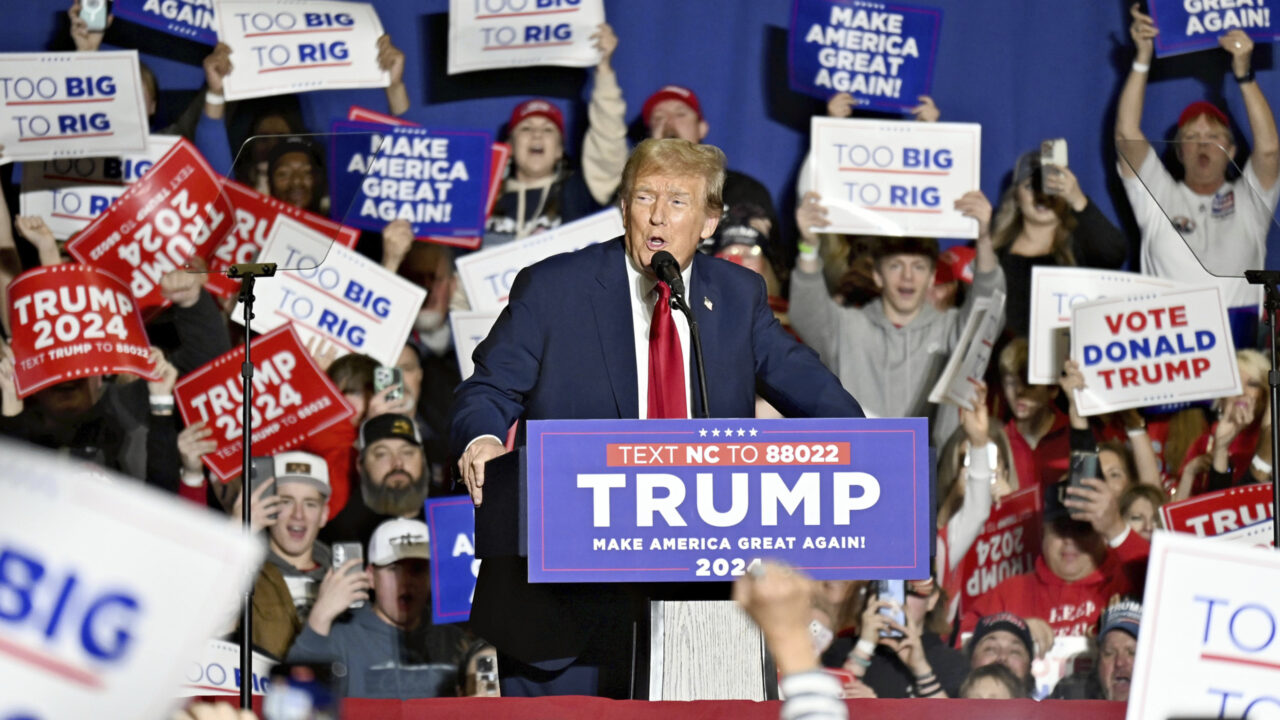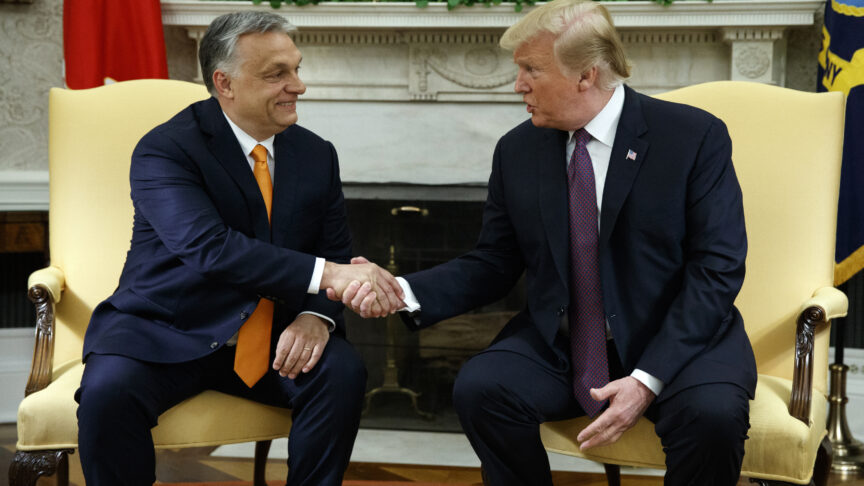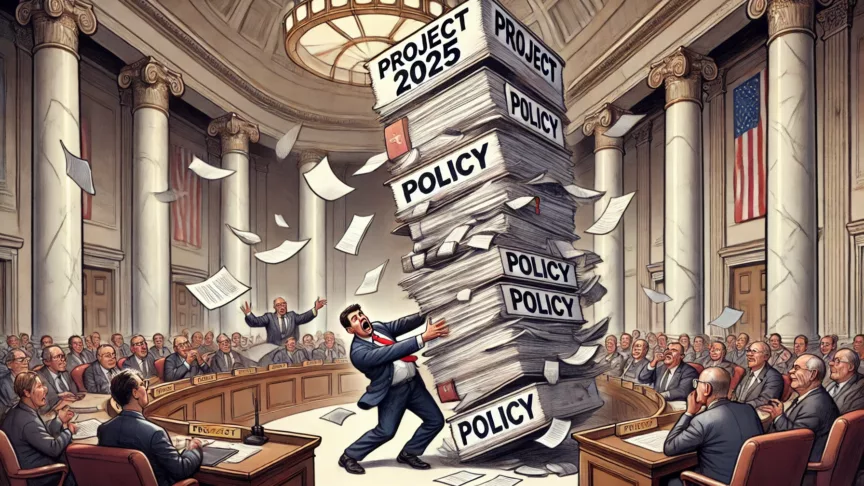Letter from Washington: Why we hate Trump
The establishment hates Donald Trump and Trump voters hate the establishment. In this second instalment of ECFR’s Letters from Washington, Jeremy Shapiro explains why Europeans need to understand the dynamics that underpin this toxic relationship
In my wanderings around Europe, people often ask me how Americans can possibly vote for Donald Trump. What happened, they say accusingly, to your great country that half of it fell so deeply in love with this hateful figure? Within Washington, there are no good answers to this question. It is a poorly kept secret that even most Republicans in Washington loathe him and struggle to understand how he stole their party out from under them. Amongst the political elite on both sides of the Atlantic, Trump’s enduring appeal remains a great political puzzle of our age.
But for many people beyond the Washington beltway, even to ask that question is to misunderstand America. They see the fear and loathing that Trump generates in ‘establishment’ institutions from the New York Times to the US Senate as proof that he is onto something. Trump’s 91 criminal indictments, the innumerable civil suits against him, and the apocalyptic predictions that his re-election will destroy the Republic are in this view manifestations of a blind and unremitting hatred. The important question is therefore not why they vote for him, but why the political establishment hates him so much.
Kevin Roberts, the president of the conservative Heritage Foundation think-tank in Washington, has a succinct answer to that question. “The political elite hates Donald Trump”, he told a group of evangelical radio broadcasters in Texas in February, “because he is a threat to them. He’s a threat to their agenda. He’s a threat to their privilege. He’s a threat to their vaulting messianic ambitions. And most of all, what disturbs them most, is he’s a threat to their power.”
This is an answer Europeans need to understand. Not just to grasp what is happening in the United States, but also to reflect on their political struggles with Trump-like political forces at home.
The messenger
As so often, the messenger is also the message. Roberts arrived at Heritage as a DC outsider, and has spent the past two years transforming it into it a new sort of anti-elite think-tank. Heritage’s mission is no longer just to provide ideas for Republican policies. It is now also to police the divide between the governed and those who govern them.
On the one hand, as Roberts told the New York Times in January, Heritage’s project is to “institutionalize Trumpism”. Working with other like-minded organisations, the foundation has produced the “Mandate for Leadership”, a gigantic 800-plus-page guide for how a new Republican administration might run the country. It brims with conservative policy ideas. But more fundamentally its message is that people and institutions matter more than ideas.
Of course, the Republican party has long pushed an anti-elite message. To some extent every Republican president at least since Ronald Reagan, and many Democrats too, have run as Washington outsiders. Nepo-baby George W Bush – the ultimate insider – even managed to pull off this trick in his 2000 election campaign.
The Republican party has long pushed an anti-elite message. To some extent every Republican president at least since Ronald Reagan, and many Democrats too, have run as Washington outsiders
But they rarely governed that way. The first Trump administration’s main failure was, in the view of Roberts and many other Trump supporters, to believe that you could make a revolution using the same old elites. For them, Trump’s conservative policies were too often stymied by the entrenched bureaucracy of the administrative state, the deep liberal bias of the United States’ media and cultural institutions, and even by the perfidy of Trump’s own establishment political appointees.
A new term would suffer the same fate unless it first destroyed that elite and replaced it with those who do not secretly hate Trump. Heritage is thus also assembling a database of tens of thousands of potential government appointees who will, Roberts hopes, finally break the power of the elites who have ruled Washington for so long. “President Trump is going to take power away from the elites,” Roberts told the assembled power brokers in Davos this January, “many people in this room are part of the problem.”
“Mandate for Leadership” is thus also a blueprint for gutting the administrative state, “the two million unelected, unaccountable career Federal bureaucrats … who”, according to Roberts, “have illegally and unconstitutionally resisted conservative reform for generations.” And the battle will be fought well beyond the federal government. A new Trump administration will “directly attack the woke-industrial complex. All the left-wing elites who derive their power, their prestige, their wealth [from] manipulating the federal budget.”
This approach provides Roberts with a ready explanation for why the establishment, even the Republican establishment, hates Trump. “The establishment opposes this agenda not because they fear it will be authoritarian or cruel, but because they fear it will work … returning democratic authority back to the American people from the elites who have stolen it from them.”
We love him because you hate him
So, maybe Trump voters don’t love him as much as they dislike the elites. An important part of Trump’s appeal is clearly the hatred he generates among America’s establishment, both Republican and Democrat. Every indictment, every attack by never-Trump Republicans or liberal cultural elites, only serves to strengthen the conviction of his voters that Trump is doing something right.
Trump voters participating in focus groups often reveal that they see his flaws clearly, but as the Republican pollster Sarah Longwell notes, “hatred of the political elites is just such a common theme.” As Roberts told the assembled evangelicals in Texas, “we are electing a president not a pastor. We should not let people who … hate our religion, who hate our freedom to practice it, and hate our right to raise our children in our faith tell us how we should vote at the ballot box.” In other words, the loathing Trump engenders in the establishment is a feature of his politics, not a bug.
All of this means it is probably time for liberal Europeans to stop asking how Americans can vote for Trump and instead ask themselves why Trump voters revel so much in elite hatred. One can see a similar dynamic within Europe in which elite condemnation of populist parties only seems to increase their popularity with voters. Anti-elitism is fast becoming the defining political ideology of the West and it expresses the deep chasm that has opened between the governed and the governing. Simply copying populist policies on, say, immigration doesn’t really scratch that anti-elitist itch. Voters apparently don’t really need to like the candidates or policies they are voting for; they only need to hate what they are voting against.
The European Council on Foreign Relations does not take collective positions. ECFR publications only represent the views of their individual authors.



